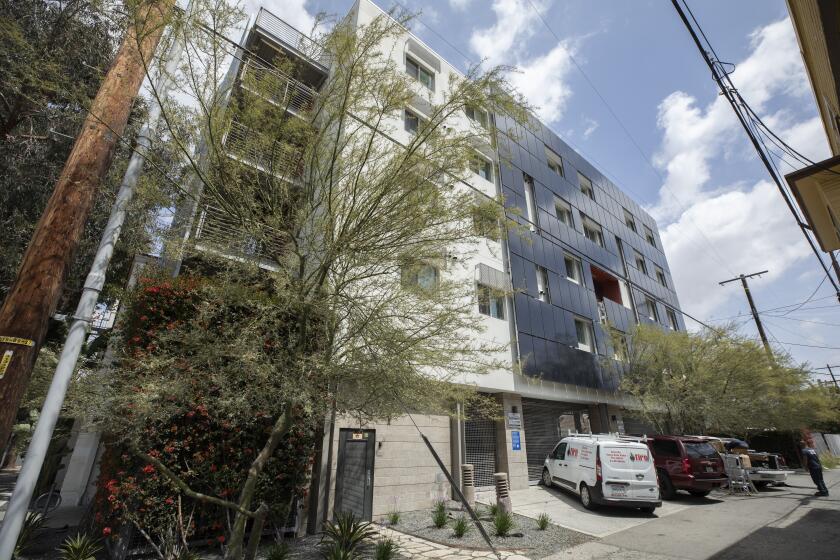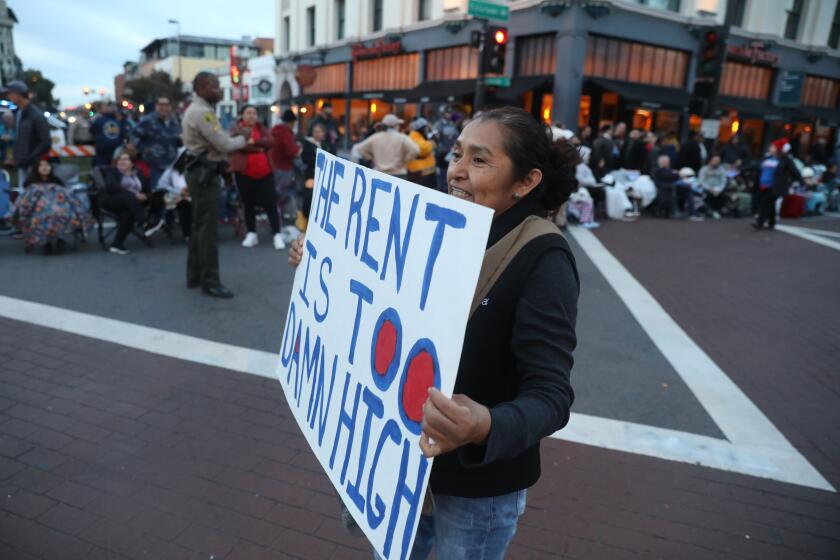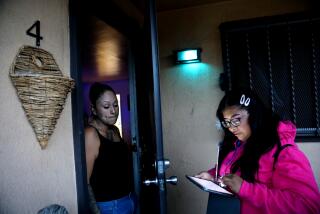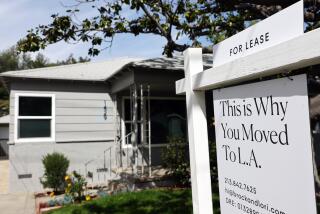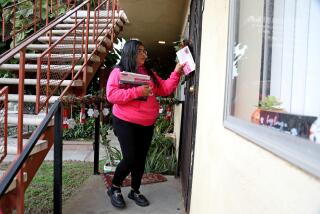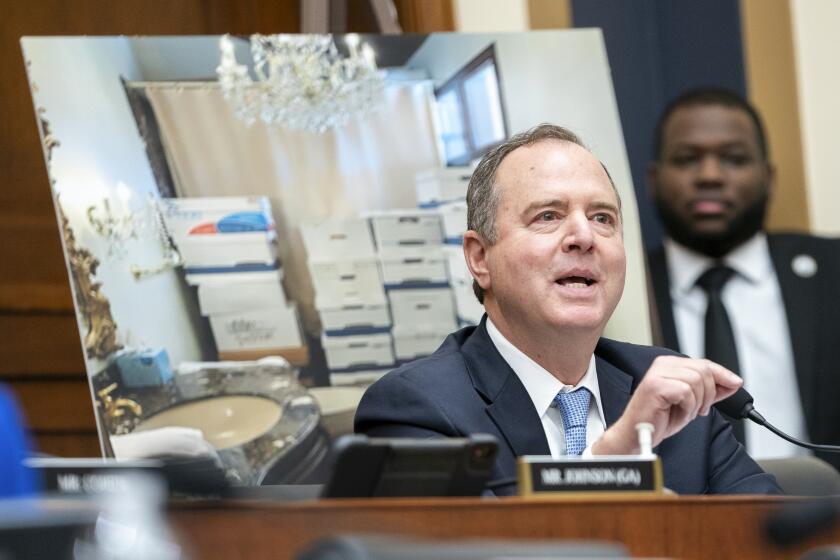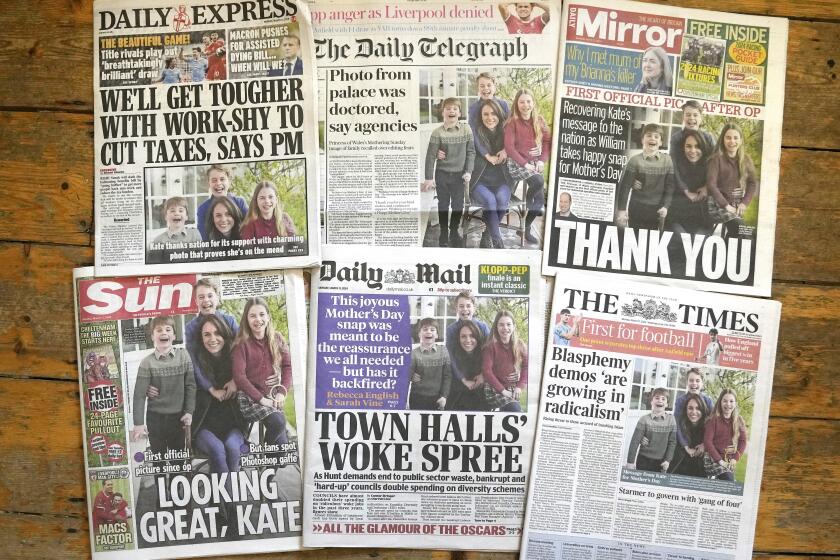Opinion: Renting in L.A. could go from bad to worse

Renting in Los Angeles is about to become more difficult for many people.
The last of Los Angeles’ pandemic-era renter protections expired Feb. 1. For the first time since April 2020, owners of rent-stabilized apartments — 70% of rental units in the city — are allowed to increase rents. And the last chunk of any unpaid back rent is due.
In trying to prevent homelessness, the city and county have passed numerous measures that make it impossible for small landlords to function and will shut more renters out of the market.
Don’t expect a soft landing. Depending on how the city responds, it could find itself escalating a lose-lose conflict with local landlords, and the pain would be widely felt: More than half of Angelenos live in rental units.
Already the city is bracing for a spike in evictions and homelessness. An estimated 90,000 households have outstanding rent debt from the period when pandemic protections were in place, and roughly 60% may be unable to pay it.
The fruit of this booming economy is almost all going to the wealthiest few, thanks to Reaganomics. Americans don’t have to accept that.
The city’s fledgling renter assistance program has distributed only a fraction of its $30-million budget; it has 30,000 applicants requesting a total $473 million to cover back rent. A small minority of applicants have been approved but have not yet received money; they have been given a 120-day grace period to avoid eviction. But most applicants still have no idea whether they’ll be approved.
The dominoes started falling last year. Eviction filings doubled from 5,000 in February to 10,000 in April and May after tenants were once again required to pay full monthly rent (separate from unpaid back rent) to avoid eviction. Ever since, evictions have remained 20% to 25% higher than the old baseline.
After the uncertainty of recent years, many landlords are likely to be looking for more revenue and stability. The pandemic was a scarring experience for smaller landlords, many of whom found themselves squeezed as their nonpaying tenants were protected by the city and as rents remained frozen amid historic inflation. Of course, landlords are not entitled to perpetual positive returns. Housing, like any asset, has downside risk. Some landlords — especially those who aggressively scooped up new rental units anticipating a surefire payday — lost that bet during the pandemic.
At the same time, landlords are within their rights to evict tenants who don’t pay. They would also be justified in more carefully vetting potential tenants within the bounds of the Fair Housing Act. Rather than rent units quickly, they may let units sit empty as they wait to find more financially established tenants. This could make it even harder to secure affordable housing in L.A. — especially for those with unsteady incomes (gig workers, contractors, artists) as well as those with potential red flags that background checks will inevitably uncover (such as justice-involved individuals and renters with poor credit histories or past evictions).
The city has launched a tenants’ rights awareness campaign, which could deter some overzealous landlords. The city also aims to aggressively expand the availability of legal counsel for those facing eviction.
Legal representation is a core part of the judicial process — and it’s crucial that tenants be protected from unlawful evictions. However, paying a fleet of public defenders to contest and delay every attempt at eviction might add fuel to the fire while draining the resources of the city and landlords alike.
While universal right-to-counsel programs boast high success rates of keeping people housed, it’s unclear what percentage of these successes involve averting an illegal eviction versus a landlord giving up and eating the cost of lost rent. Ninety-six percent of evictions in L.A. in 2023 came from nonpayment of rent, which should mostly be cut-and-dried cases. There are also other, less costly ways to prevent illegal eviction filings from reaching court. In some cities, tenants with complaints about living conditions can protect themselves from landlord retaliation by legally withholding rent and depositing it in a third-party escrow account.
It’s expected that providing counsel will cost the city $68 million each year — and recall that the city dredged up only $30 million for its rental assistance program. These resources could be focused on rehousing displaced families as quickly as possible. Instead the city is pursuing a policy that further antagonizes landlords and sends tenants the message that they might be able to get away with not paying rent if they fight hard enough.
Los Angeles doesn’t have to go straight to the most costly and adversarial policy to reduce evictions and prevent homelessness. In Philadelphia, lawmakers made permanent an eviction diversion program at a cost of $15 million. Landlords seeking an eviction are required to participate in a 30-day mediation period with a single goal: settling disagreements out of court and without an eviction. Under this program, more than 70% of disputes have successfully come to an agreement outside of court. Hawaii did similarly, with 87% of cases resulting in settlement.
Los Angeles can ill afford a drawn-out power struggle with landlords. That risks creating a “survival of the fittest” landscape where only property owners able to weather and adapt to renter protections stay in the market. Corporations already own more than 40% of the city’s rental units, a figure that could grow if smaller landlords make good on their threats to exit the market, either selling out to corporate owners or taking units off the market. That’s potentially a huge problem for this rental market, which is already among the worst in the nation when it comes to housing production.
On a more promising note, the economy has been roaring with job creation and higher wages for those at the lower end of the income distribution. Many have been back at work after a tumultuous year of strikes. That bodes well for tenants facing their first rent hikes in four years.
But the fact remains that Los Angeles is one of the least affordable places to live in the country. That’s the root cause of the impending eviction crisis and why renters needed so much protection in the first place. If the city prefers to keep strengthening renter protections while simultaneously blocking developers from constructing affordable housing, brace for a new status quo: a stricter, even pricier rental market under the growing watch of aggravated landlords and faceless corporations.
George Zuo is an associate economist at Rand and a professor of policy analysis at the Pardee Rand Graduate School.
More to Read
A cure for the common opinion
Get thought-provoking perspectives with our weekly newsletter.
You may occasionally receive promotional content from the Los Angeles Times.
